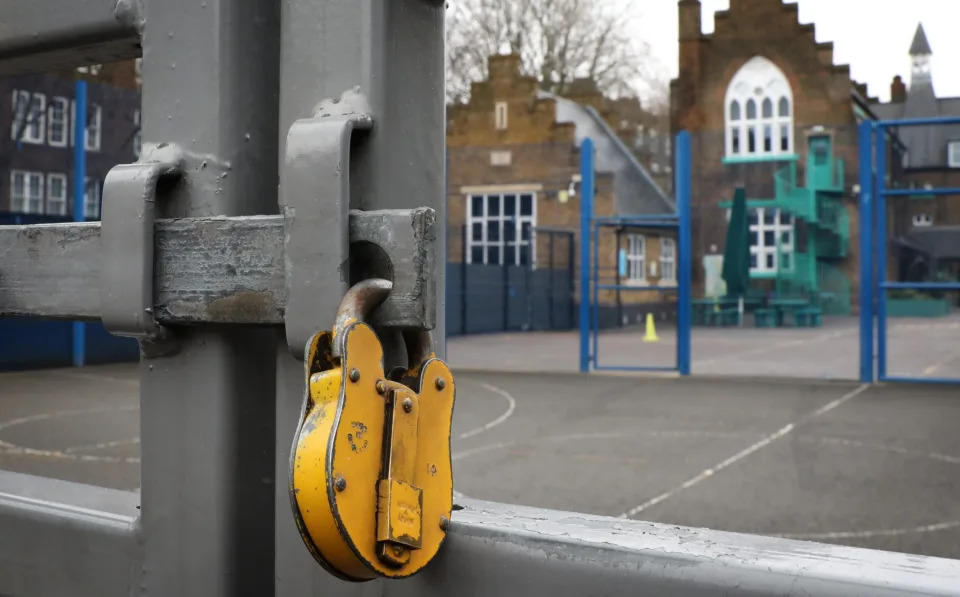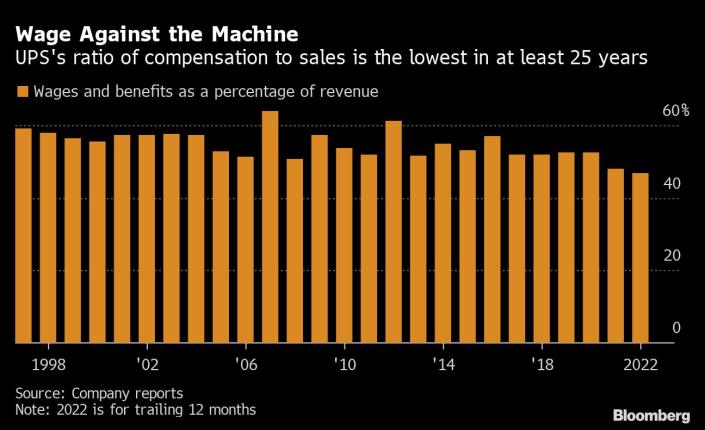Mon, 30 January 2023
A strike by up to half-a-million workers in bitter disputes over pay, jobs and conditions this week should send a clear message to the Government that it cannot continue to ignore the causes of the unrest, according to the head of the TUC.
Teachers, train drivers, civil servants, university lecturers, bus drivers and security guards from seven trade unions will walk out on Wednesday in what will be the biggest day of industrial action in over a decade.
Protests will be held across the country on the same day against the Government’s controversial plans for a new law on minimum service levels during strikes.
Unions have dubbed it the “anti-strike bill”, saying it could lead to workers who vote legally to strike, being sacked.
TUC general secretary Paul Nowak said Wednesday will be a “really important day” for workers and members of the public to show support for those taking action to defend pay, jobs and services, as well as for the right to strike.
He told the PA news agency: “I hope it will send a clear message to the Government that they cannot continue to ignore the demand for fair pay.
“In his recent statement on the economy, the Chancellor has chosen to ignore the staffing crisis and concerns of millions of public service workers.
“The Government seems tone deaf to the issues that matter to the public.”
Mr Nowak said the Government should be worried about the level of support for workers taking strike action.
“I joined physiotherapists on a picket line last week. It was the first time they had been on strike and they were loath to take industrial action, but they received huge support from members of the public, and their mood was upbeat and defiant.
“I think the Government has been taken by surprise at the level of public support for the strikes, because the issues cut across political boundaries.”
Mr Nowak said the Prime Minister and Chancellor now had to get involved in trying to resolve the long running disputes in the health service, education, civil service and other parts of the public sector.
“I wish they would spend as much time trying to resolve the disputes as in attacking the right to strike.”
Picket lines will be mounted outside schools, train stations, universities and Government departments on Wednesday, and rallies will be held across the country.
Thousands of people are expected to join a march through central London to Westminster for a rally to be addressed by union leaders.
The TUC will also hand in a petition to 10 Downing Street, signed by more than 200,000 people, opposing the new legislation on strikes.
The National Education Union (NEU) has announced seven days of strikes in England and Wales in February and March, with the walkout on Wednesday expected to affect over 23,000 schools.

Teachers on the picket line outside Falkirk High School in Stirlingshire (PA)
Teacher members of the union in sixth form colleges in England, who have already been balloted and taken strike action in recent months, will also take action on these days in a separate but linked dispute.
Dr Mary Bousted and Kevin Courtney, joint general secretaries of the NEU, said: “We have continually raised our concerns with successive education secretaries about teacher and support staff pay and its funding in schools and colleges, but instead of seeking to resolve the issue they have sat on their hands.
“It is disappointing that the Government prefers to talk about yet more draconian anti-strike legislation, rather than work with us to address the causes of strike action.
“This is not about a pay rise but correcting historic real-terms pay cuts. Teachers have lost 23% in real-terms since 2010, and support staff 27% over the same period.
“The average 5% pay rise for teachers this year is some 7% behind inflation. In the midst of a cost-of-living crisis, that is an unsustainable situation.
“Teachers are leaving in droves, a third gone within five years of qualifying. This is a scandalous waste of talent and taxpayers’ money, yet the Government seems unbothered about the conditions they are allowing schools and colleges to slide into.
“The Government must know there is going to have to be a correction on teacher pay. They must realise that school support staff need a pay rise.”
Wednesday, involving members of the NEU, Aslef, Rail, Maritime and Transport union, University and College union, Public and Commercial Service union, Unite and the IWGB, will see the biggest day of strikes since 2011 when a national day of action was held by public sector unions over pensions.



















